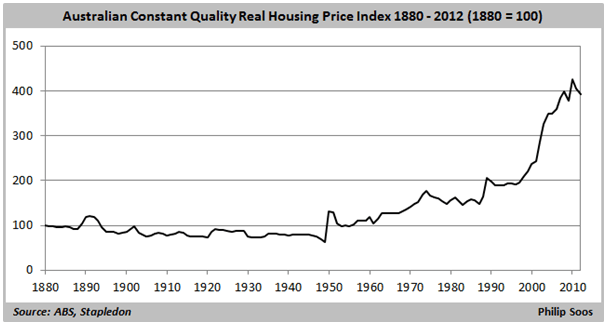But wages
haven't caught up, for over 50 years now.
Imagine you're blowing up a balloon.
When it's 60% full, some people call "it's going to burst!".
At 70% full, skeptics say "see, it didn't burst!"
At 80% full, the concerned parties say again: "it's going to burst!"
And at 90%, skeptics respond "it still hasn't burst, they're talking ****!"
The fact it hasn't yet burst, doesn't mean it's never going to.

I think there does eventually have to be a significant correction, or - more likely in my humble and completely amateur opinion - prolonged periods of stagnation. i.e. Houses that cost $700K now, will still cost $700K in 10 or 15 years' time. If wages grow at 3% in that time, that's equivalent to dropping the ratio of average house price to wages from its present 4 to just under 3 (which is still high by global standards).

